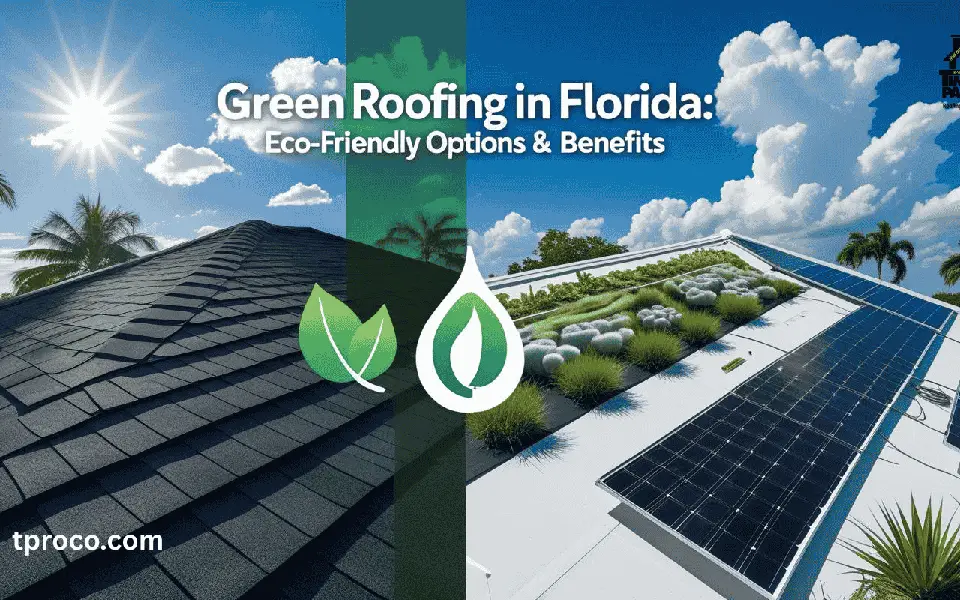Our Blogs
Roofing Scams in Florida: Know the Red Flags & Stay Protected 🚫
Florida’s booming housing market and frequent storms can create a perfect breeding ground for dishonest roofers and fly-by-night contractors. You might receive a knock on your door after a big storm or see too-good-to-be-true offers on social media. While most roofing professionals are legitimate and hardworking, the few bad apples can wreak havoc—leaving you with subpar workmanship, inflated costs, or an unfinished project. In this blog, we’ll explore how to spot the common warning signs of a roofing scam, verify a contractor’s credibility, and protect your home (and wallet) in Florida’s high-stakes roofing scene. If you want peace of mind in an industry prone to shady deals, keep reading for practical tips to safeguard your investment.

Why Florida Is a Hotspot for Roofing Scams
Florida’s unique climate and insurance landscape create ideal conditions for fraudulent contractors:
1. Frequent Storm Damage
Hurricanes & Tropical Storms: High winds and heavy rain can generate constant demand for roof repairs or replacements. Scammers exploit vulnerable homeowners eager for quick fixes.
Insurance Claims: With so many insurance payouts in storm-prone areas, unscrupulous roofers see a goldmine in filing inflated claims or cutting corners on repairs.
2. Seasonal Swells in Demand
Snowbird Effect: Part-time residents may be away for months, leaving property unmonitored. Predatory contractors might pounce on absent owners.
High Population Growth: Florida attracts new residents each year, and newcomers may lack local knowledge of reputable contractors.
3. Loose Door-to-Door Rules
Unsolicited Visits: It’s legal for contractors to knock on doors, but criminals often impersonate legitimate businesses to pressure homeowners into hasty decisions.
Fly-By-Night Operations: Scam artists can vanish after collecting down payments, leaving owners with incomplete projects.
Common Roofing Scam Tactics
Storm Chasers
Out-of-State “Pros”: They roll in after a natural disaster, offering quick fixes. They pressure you into immediate contracts without thorough inspections.
Poor Workmanship: Even if they do finish the job, they may use cheap materials or skip crucial steps. By the time leaks appear, they’re long gone.
High-Pressure Sales & False Urgency
Limited-Time Offers: Phrases like “today only” or “exclusive discount” can be red flags. Reputable contractors rarely rush homeowners with one-day deals.
Aggressive Upgrades: Some push add-ons like expensive sealants or enhanced materials without a clear explanation of benefits.
Insurance Fraud or “Free Roof” Claims
Waiving Deductibles: This practice is illegal in Florida, yet some roofers promise to “handle your deductible” or inflate an insurance claim to cover it.
Bogus Damage Reports: Contractors might fabricate photos or exaggerate issues to file larger claims, leaving you liable for insurance fraud if discovered.
Unlicensed Contractors
Falsified Credentials: Scammers may show you forged licenses or insurance documents.
No Paper Trail: Without a legitimate contract or licensing info, you have limited recourse if something goes wrong.
How to Verify a Roofing Contractor’s Credibility
Check Licenses & Insurance
Florida Department of Business & Professional Regulation (DBPR): Look up the contractor’s license number online.
General Liability & Workers’ Compensation: Ask for proof of insurance and call the provider to confirm.
Local References & Reviews
Ask for Addresses: A trustworthy roofer will have a list of completed projects in your area. Drive by and, if possible, talk to homeowners about their experiences.
Online Platforms: Check Google, Yelp, or the Better Business Bureau. Be wary of a contractor with mostly 5-star ratings and no negative or neutral reviews—it can be a sign of fake feedback.
Written Estimates & Contracts
Detailed Scope of Work: Look for line items covering materials, labor costs, warranties, and timelines.
No Blank Spaces: Refuse any contract leaving sections blank for the contractor to fill in later.
Payment Terms: Steer clear if they demand a large portion of payment upfront. A modest down payment is standard, but never pay in full before work starts.
Professional Affiliations & Credentials
Local Roofer Associations: Membership can indicate adherence to industry standards.
Manufacturer Certifications: Some reputable roofers hold certifications from shingle or membrane manufacturers, reflecting extra training and product knowledge.
Red Flags to Avoid
Unmarked Vehicles & No Physical Address
Transient Crews: Be cautious if the contractor’s truck lacks a company logo or if they can’t provide a local business address.
Cash-Only Deals
No Paper Trail: Cash transactions leave little room for official receipts or dispute resolution.
Tax & Insurance Evasion: A legitimate business typically accepts checks, credit cards, or financing plans.
Extreme Low Bids
Subpar Materials or Labor: A quote far below competitors often signals that corners will be cut.
Potential “Bait & Switch”: The final invoice might balloon with hidden fees after the job begins.
Lack of Communication
No Straight Answers: Vague or evasive replies about licensing, insurance, or scheduling can signal something’s off.
Unavailable or Unresponsive: If they dodge calls before you sign a contract, imagine how they’ll handle issues post-installation.
What to Do If You’re a Victim
Document Everything
Keep All Receipts & Contracts: Gather text messages, emails, and photos as evidence.
Payment Records: If you paid by check or card, contact your bank or provider immediately.
Contact Local Authorities
File a Police Report: This adds an official record of the incident, crucial for insurance or legal actions.
DBPR Complaint: Florida’s licensing board can revoke a contractor’s license if it’s proven they violated regulations.
Notify Your Insurance Company
Honesty Is Key: If you suspect a fraudulent claim or inflated invoice, proactively inform your insurer.
Claim Adjusters: They may investigate suspicious charges and help you avoid liability.
Consult an Attorney
Consumer Protection Laws: Florida has laws against unfair trade practices. A lawyer can help you navigate potential litigation or settlement.
Possible Refund or Damages: Legal action might recoup at least some of your financial losses.
Conclusion
🚫 In a state as storm-prone and fast-growing as Florida, it’s essential to stay vigilant against roofing scams. From unlicensed contractors offering suspiciously low bids to high-pressure sales tactics that exploit your fears, scammers have plenty of methods to trick unsuspecting homeowners. Thankfully, arming yourself with knowledge—like verifying licenses, demanding written contracts, and checking references—can block most fraudulent attempts before they cause damage. A legitimate contractor welcomes questions, has transparent pricing, and offers a clear paper trail. By taking the time to vet your roofer thoroughly, you protect both your home and your financial well-being. The peace of mind you gain is well worth the extra effort.
Frequently Asked Questions (FAQ)
Share Your Story & Help Others!
Have you encountered roofing scams or found reliable ways to confirm a contractor’s credibility? Share your experiences below and tag us on social media using:
#tproco #tppro #tprci #urro #rrfl
#RoofScams #FloridaContractors #HomeSafety#SunshineStateLiving #TampaRoofing #OrlandoRemodel
Schedule a Free InspectionAbout the Author

Timothy Parks
CEO
📢 Stay Informed: Communication & Consent Updates
At Timothy Parks Roofing & Construction Inc., we prioritize transparency in our communications. By submitting a request, you agree to receive calls, texts, and emails regarding our services. Standard messaging rates may apply. You can opt-out at any time by replying STOP or contacting us directly.
✅ Florida License: #CBCO59592, #CCC1327217, #HI4878
📌 Privacy & Terms: Read our Privacy Policy and Terms of Service.



